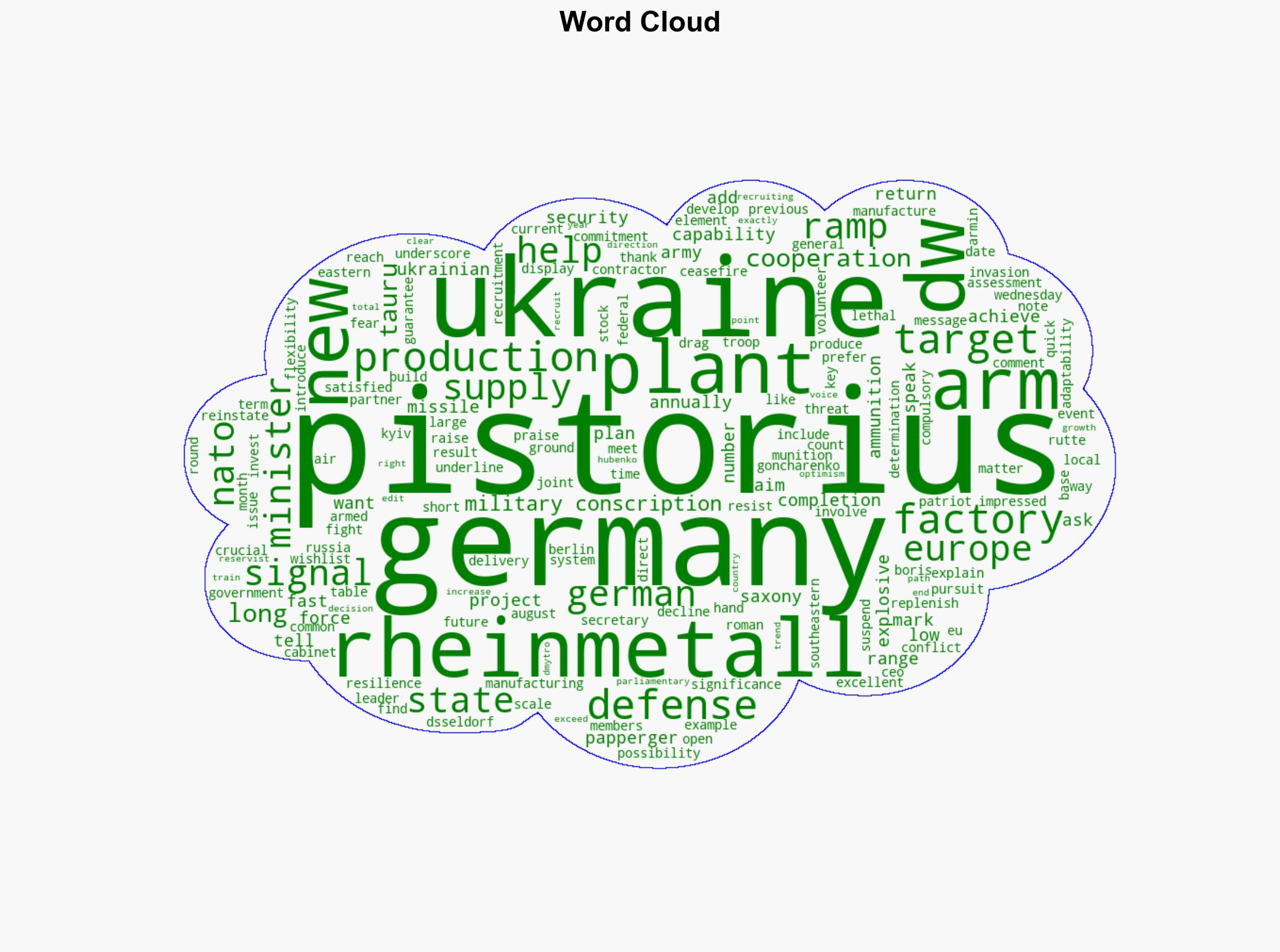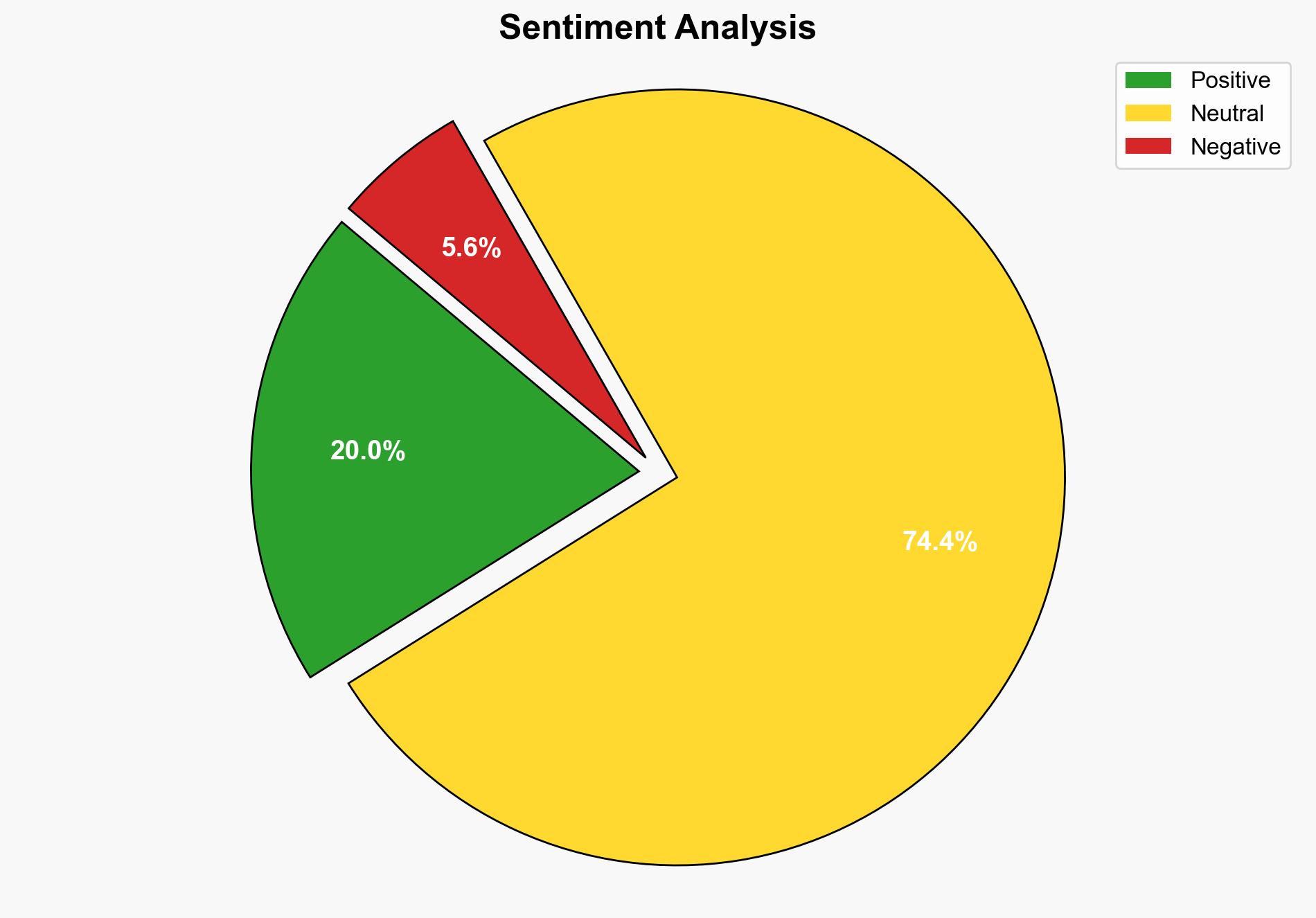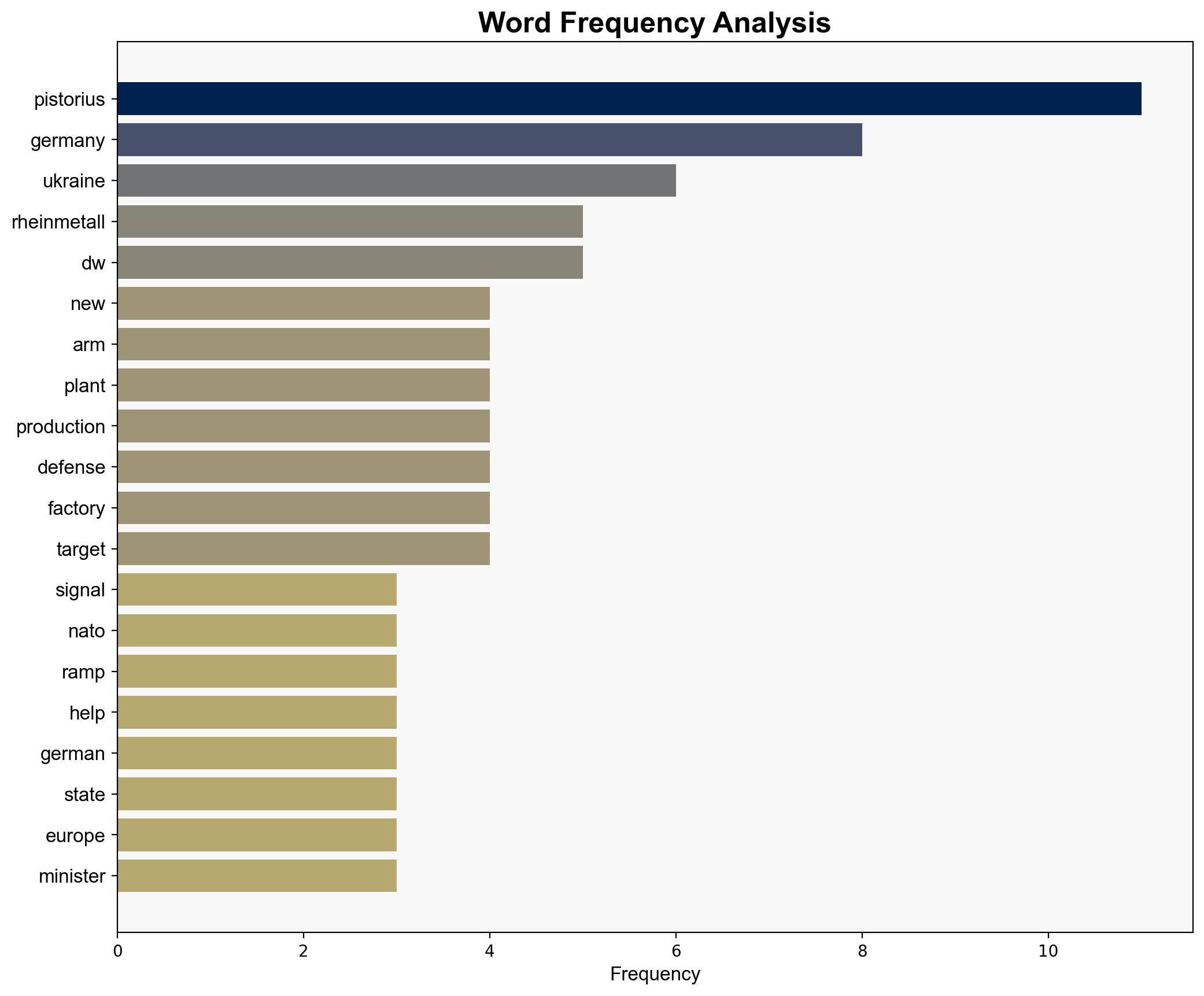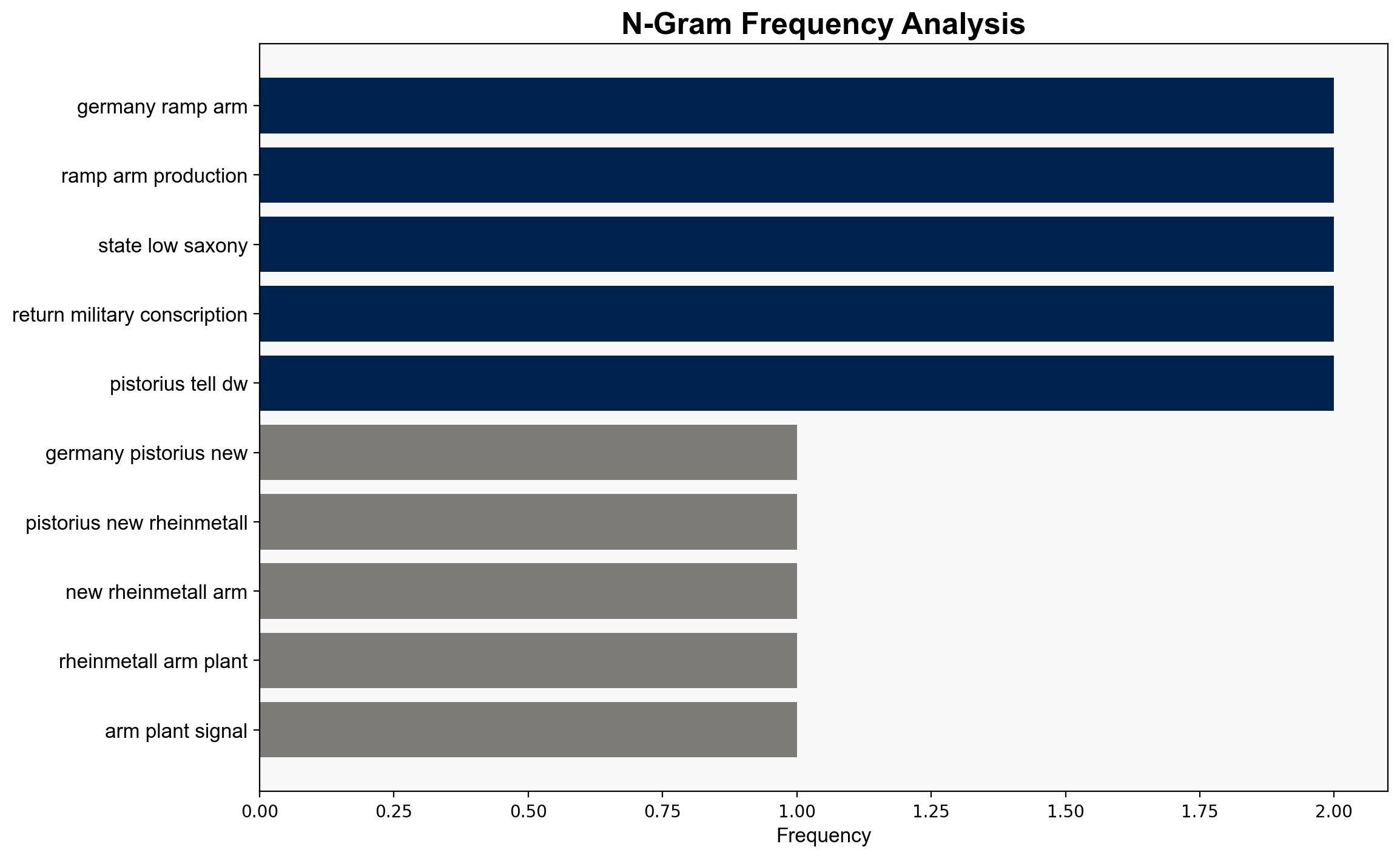Pistorius Rheinmetall arms factory sends message to Russia – DW (English)
Published on: 2025-08-28
Intelligence Report: Pistorius Rheinmetall arms factory sends message to Russia – DW (English)
1. BLUF (Bottom Line Up Front)
The establishment of the Rheinmetall arms factory in Germany is a strategic move aimed at bolstering NATO’s defense capabilities and supporting Ukraine against Russian aggression. The most supported hypothesis is that this initiative is a direct response to current and future security threats posed by Russia. Confidence level: High. Recommended action: Strengthen diplomatic channels with NATO allies to ensure cohesive defense strategies and continue monitoring Russian responses to mitigate escalation risks.
2. Competing Hypotheses
1. **Hypothesis A**: The new Rheinmetall arms factory is primarily a strategic measure to enhance Germany’s and NATO’s defense capabilities in response to Russian aggression in Ukraine and potential future threats.
2. **Hypothesis B**: The factory’s establishment is driven by economic interests, aiming to position Rheinmetall as a leading defense contractor in Europe, with the Ukraine conflict serving as a convenient justification.
Using the Analysis of Competing Hypotheses (ACH) 2.0, Hypothesis A is better supported due to the explicit mention of NATO’s involvement and the strategic emphasis on rapid production to support Ukraine. Hypothesis B lacks direct evidence of economic motivations being the primary driver.
3. Key Assumptions and Red Flags
– **Assumptions**: The assumption that increased arms production will directly deter Russian aggression may overlook Russia’s potential asymmetric responses.
– **Red Flags**: The lack of detailed information on how the factory will impact regional security dynamics could indicate potential blind spots in strategic planning.
– **Cognitive Bias**: Confirmation bias may lead to overemphasizing the threat from Russia without considering other geopolitical factors.
4. Implications and Strategic Risks
– **Implications**: The factory could enhance NATO’s deterrence posture but may also provoke Russia, leading to increased tensions or cyber retaliation.
– **Strategic Risks**: Potential escalation of conflict if Russia perceives the factory as a direct threat. Economic risks include dependency on arms production for regional stability.
– **Cascading Threats**: Increased arms production could trigger an arms race in Europe, destabilizing regional security.
5. Recommendations and Outlook
- Engage in diplomatic dialogue with Russia to clarify defensive intentions and reduce misinterpretations.
- Enhance cybersecurity measures to protect against potential retaliatory cyberattacks from Russia.
- Scenario-based projections:
- Best Case: Strengthened NATO defense without provoking Russian aggression.
- Worst Case: Escalation into broader conflict due to perceived threats by Russia.
- Most Likely: Increased NATO cohesion with heightened regional tensions.
6. Key Individuals and Entities
– Boris Pistorius
– Armin Papperger
– Mark Rutte
– Rheinmetall
7. Thematic Tags
national security threats, arms production, NATO, regional focus





